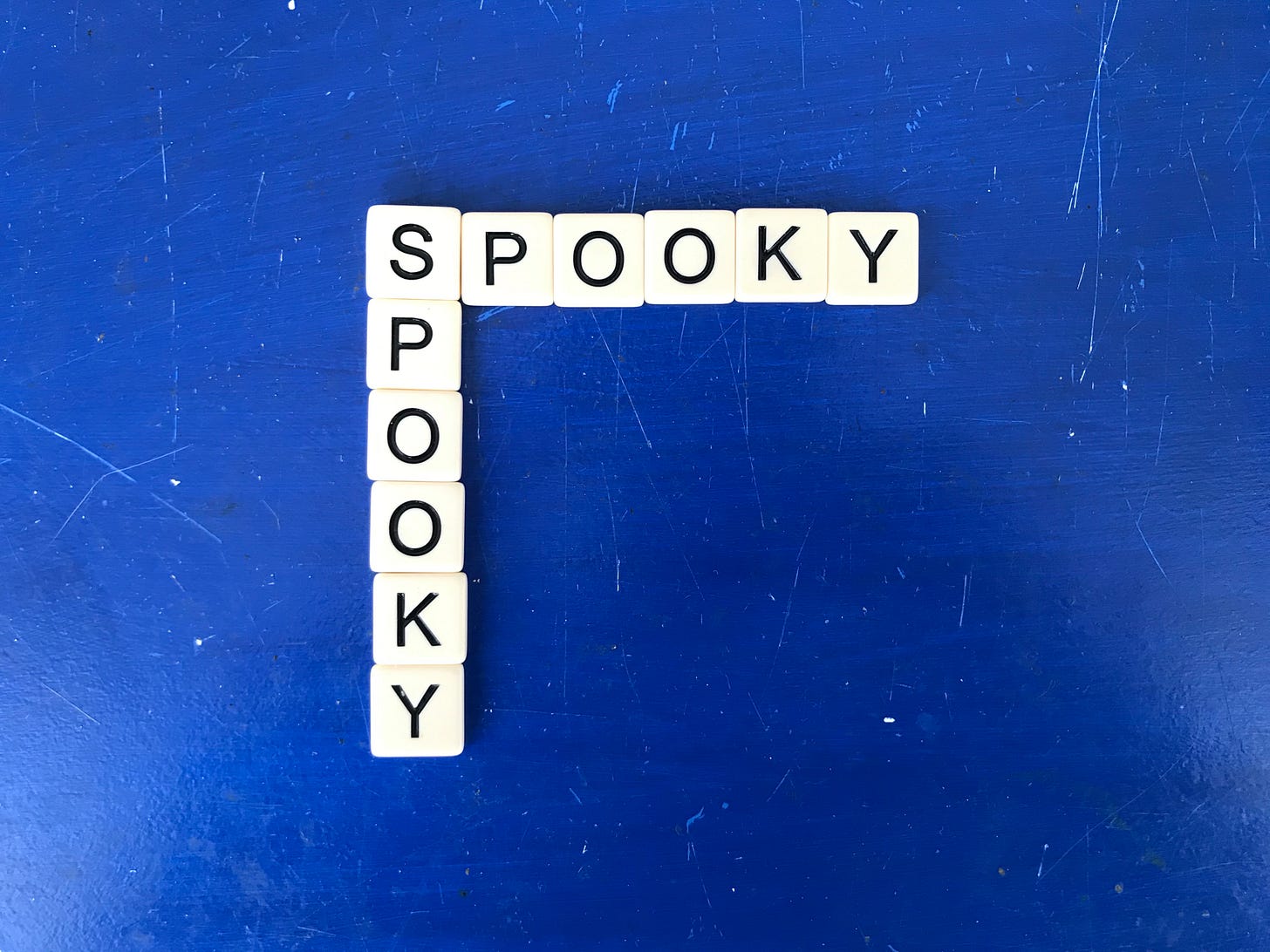The eerie joy of coincidence

A little while after my mum died, in 2017, we began to offload her possessions. The ones, at least, with no sentimental value. Her toiletries and makeup. Her many pashminas. Her large and knotted collection of cheap jewellery. One necklace, a chunky, architectural type thing, from somewhere like COS, went to an old friend of hers.
This friend, having tried it on again at home and decided she wasn’t that into it, passed it onto her sister. The friend’s sister, also feeling so-so about the necklace, gave it to a friend of hers from her yoga class.
A few days later, my dad met up with the woman he’d been dating. She was wearing a chunky, architectural style necklace, that looked familiar.
“Where did you get that?” he asked, frowning.
“Oh, a friend from yoga gave it to me,” she said.
In London, a city with a population of over eight million, a necklace once belonging to my mum had – through pure chance – ended up with my dad’s new girlfriend.
Did we take this as a sign? Absolutely. This had to be Mum telling Dad she was OK with him moving on. Or maybe it was the complete opposite; her saying, “I’m watching…”. It had to be something and – whatever it was – everyone involved was thoroughly spooked.
Nothing feeds confirmation bias quite like coincidence. Or so rational people say. There was nothing ominous about the necklace incident; it was – just like everything else that happens to any of us – a meaningless bundle of maths. We, as human beings, especially with the shrinking influence of religion on our everyday lives, are obsessed with finding meaning. And over the hundreds of thousands of years we’ve existed, we’ve developed – as a coping mechanism – delusions of reference, through which we’re, each and every one of us, the protagonists in our own narrative. And if you – as the protagonist – see a discarded packet of your dead granddad’s favourite crisps, it must be a sign placed there specifically with you in mind. Right?
Something which irritates me about a lot of sceptics is their need to crap all over our coping mechanisms. Delusions or not, we see patterns for the frankly excellent reason of helping us navigate an existence that regularly seems daunting and meaningless. And as long as seeing those patterns doesn’t compel me to wage a holy war on those who don’t see them, I’m not sure being a little superstitious is really hurting anyone. On the contrary, as much as the necklace incident freaked me the hell out when I first heard about it, it’s made me feel safe in the long term.
In fiction, we usually see coincidence as a lazy and unbelievable way of shaping narrative. Which may be unfair, given the scale of some real life coincidences - from The Simpsons predicting Trump’s presidency, in an episode back in 2000; to the novel that foretold the sinking of the Titanic, fourteen years before it happened. Even these bearded doppelgangers meeting on a plane in 2015 have us wondering what the hell is going on. If there is some sort of higher power, what was the exact purpose of it placing two almost identical looking men next to one another on a flight? To mess with us? To gently remind us that it exists?
Everyone seems to have at least one example of their own bizarre coincidence. For me, it’s when I was on holiday in Berlin with my housemates, in the summer after my second year at uni. We did a guided tour and, when we got talking to the British tour guide afterwards, it turned out he’d been at the same uni as us (Sussex) a few years ago. Which, while not at all weird, was something we had in common, which we began to talk about in more detail. We asked the guide whereabouts in Brighton he’d lived, which turned out to be on the street we were currently living. Tentatively, we asked for the house number. And, yep, he’d lived in the very same house as us.
There are several subreddits dedicated to people’s similarly weird, or even weirder coincidences. In one quite moving example, redittor Ripley2179 claims to have bought a second hand copy of Oliver Twist as a secret Santa present, for a colleague she didn’t know very well. This turned out to be exactly the same edition as her colleague’s favourite book – one she’s lost in a housefire a decade ago. Placing this particular coincidence very much in the “maybe there is a God” category.
Although my entire numerical ability amounts to a B in GCSE maths, I think I can be certain that the probability of any of the above coincidences occurring would’ve been exceptionally low. Coincidences are our little lottery wins where, instead of financial security, we’re rewarded with a sense that maybe, just maybe life has some meaning. Which, in a way, is better.
Although the coincidence of my lottery numbers matching the ones drawn in next week’s EuroMillions would not be unwelcome.


